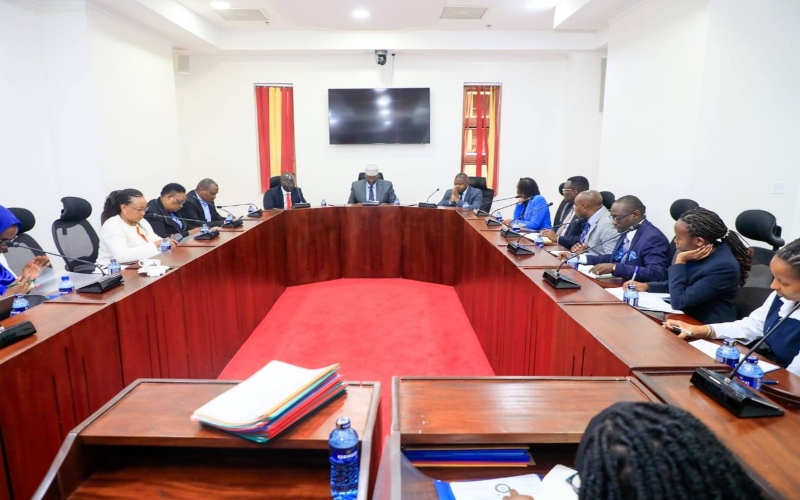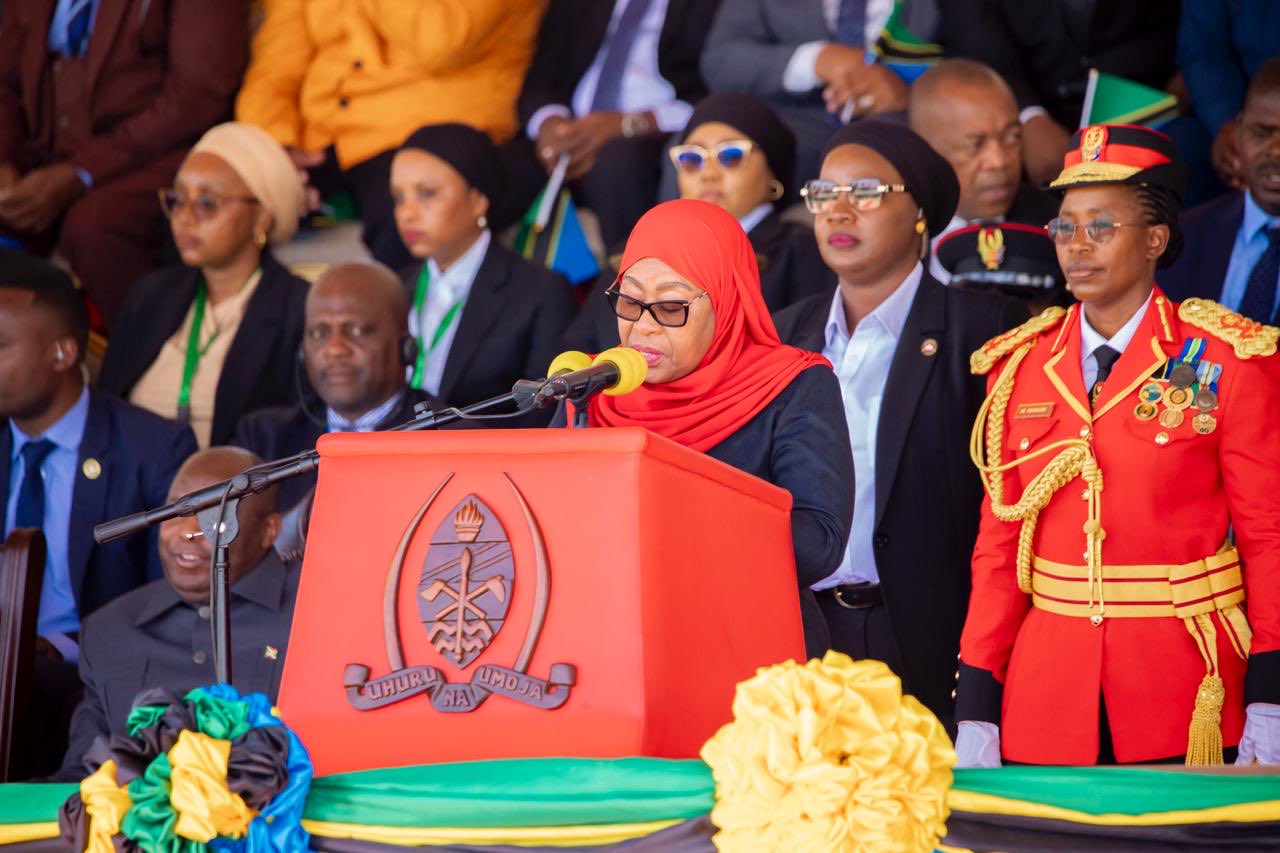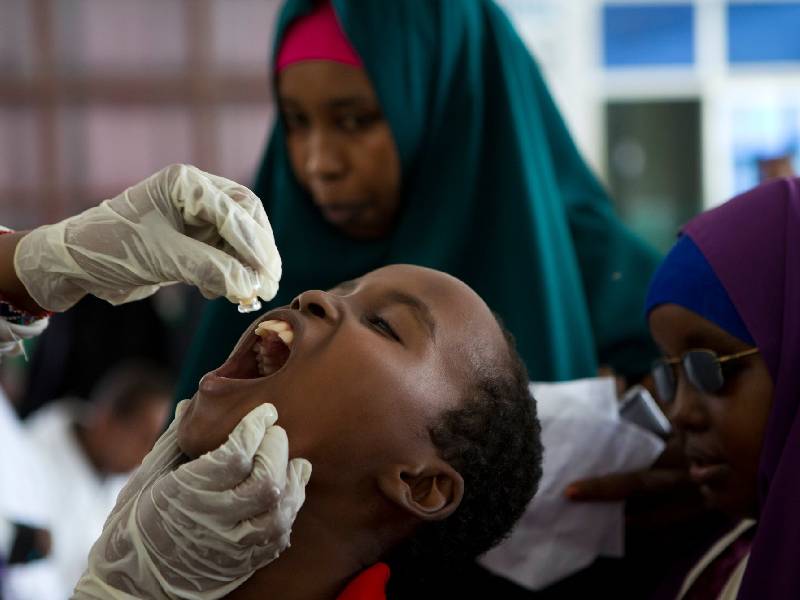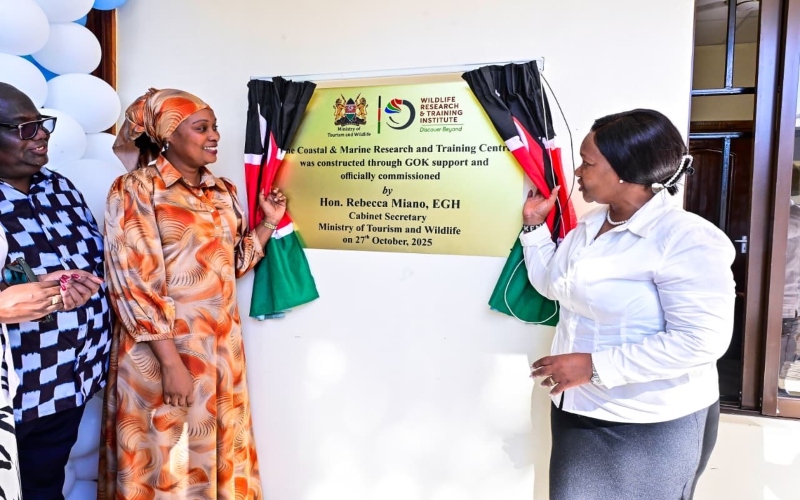Industry players call for marginalised groups' inclusion in Kenya’s green transition efforts
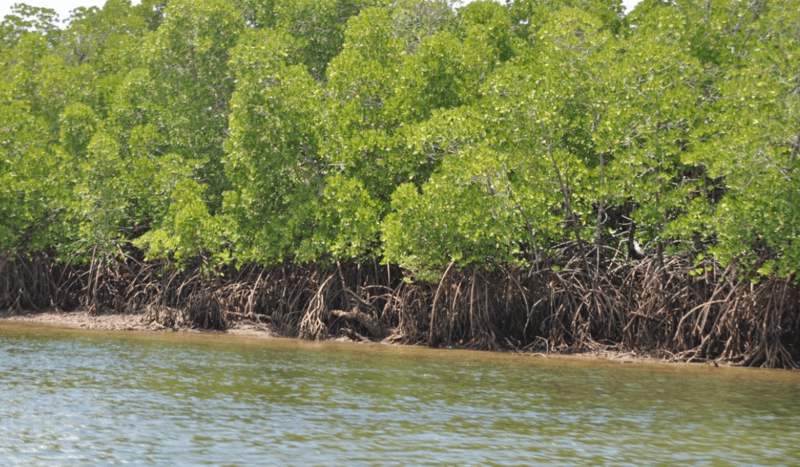
A recent spot check by the Eastleigh Voice revealed that marginalised players such as bodaboda riders and other non-green energy consumers in outlying counties feel left out in climate action efforts.
In a bid to foster an inclusive green transition, industry players are rallying for the training of marginalised stakeholders on sustainable practices and technologies.
This is as they ramp up efforts in striking partnerships with learning institutions, support groups and startups to catalyse skill dissemination to the lowest players in the pyramid.
More To Read
- Kenya among nine nations leading regional push to strengthen health systems against climate change
- Hurricane Melissa is a warning – why violent storms are increasingly catching the world off guard
- Turning food waste into energy key to climate goals, says UN report
- UN warns global climate adaptation funds running dangerously low
- Why countries struggle to ditch fossil fuels despite rising costs, decades of climate deals
- Explore earth in 2100: New online game lets you imagine the future
Concerns of underrepresentation of the small players is prevalent in the country, despite their potential towards the movement.
A recent spot check by the Eastleigh Voice revealed that marginalised players such as bodaboda riders and other non-green energy consumers in outlying counties feel left out in climate action efforts.
A majority of them noted that the high-profile talks on climate action did not match the rhetoric on the ground, as they are never involved as much in policy and intervention works.
This is despite their overzealous desire to understand the wider scope of green transition and to fully participate in the movement.
According to Ifeanyi Odoh, the country president of East Africa of electric solutions firm Schneider Electric, benchmark studies from countries in Europe and Asia have proven that putting more focus on local skilling and empowerment is key towards realising the Net Zero goal come 2050.
This should be emulated with full commitment in Africa, and in Kenya to be specific, as skilling the low-level players will enhance the appetite for transitioning, a prospect that would trigger faster adoption of greening strategies," Odoh said.
He was speaking on Tuesday during a media roundtable on efficient energy utilisation and greening solutions with a focus on local players.
He added that the big players should identify the right partners in their localisation strategy to position the country and Africa at large on the right track for a just transition while leaving no one behind.
"Backed by recent studies, local training and upskilling initiatives are proving to be instrumental in fostering community development and enhancing economic stability. By investing in local talent, these programs strengthen local economies, allowing skilled workers to contribute meaningfully to businesses and create a more vibrant job market."
Furthermore, upskilling efforts are linked to increased employment rates, as individuals acquire essential skills for available positions, thereby reducing unemployment in the area, he added in part.
Odoh also emphasised the need to merge greening actions with digitisation to push the prospects of CO2 emissions as the existing technology can remove close to 70 per cent of carbon.
The push for incorporating the marginalised players in climate action mainly aims to ensure that the shift towards a greener economy benefits all communities, particularly those historically left behind.
Recent workshops held in urban and rural areas in the country have focused on equipping participants with skills in renewable energy, sustainable agriculture and waste management but substantial gaps still exist according to reports.
Creating awareness
The World Bank for instance emphasises the urgent need to educate the public on climate action, as it is the best way to unlock large-scale behavioural change.
In its August edition of the Education for Climate Action report, the global lender notes that educational attainment is the single strongest predictor of climate change awareness.
"An additional year of basic and public education increases climate awareness by 8.6 per cent (measured by knowledge and skills on environmental issues)," the report states.
"Education also makes individuals more adaptable to the impacts of climate change, as it increases employability and incomes. Globally, every additional year of education generates about a 10 per cent increase in earnings annually," the World Bank adds.
It emphasises that educating the public also directly enhances climate adaptability.
However, the report acknowledges that climate action is progressing slowly, partly due to a lack of knowledge or skills among the population.
Across the board, there is only marginal "greening" of how economies function, how firms operate, and how individuals live and work.
In 2015, 195 countries adopted the Paris Agreement, a legally binding treaty to limit global warming to between 1.5°C and 2°C above pre-industrial levels.
A stocktaking by the World Bank in 2023, however, revealed that global efforts to meet these targets are falling short.
Of the 42 climate indicators tracked, only one is on track to meet its 2030 target.
"Six are 'off track,' 24 are 'well off track,' six are headed in the wrong direction entirely, and five lack sufficient data to track progress," the report stated.
The World Bank also laments that global climate efforts have placed tremendous emphasis on lowering emissions through policy, but insufficient attention has been given to building support for these policies, implementing them effectively, and ensuring their success.
At the same time, it notes that low- and middle-income countries urgently need large-scale efforts to adapt to the impacts of climate change, which will require improved awareness, knowledge, skills, and behaviours among their populations.
Top Stories Today

